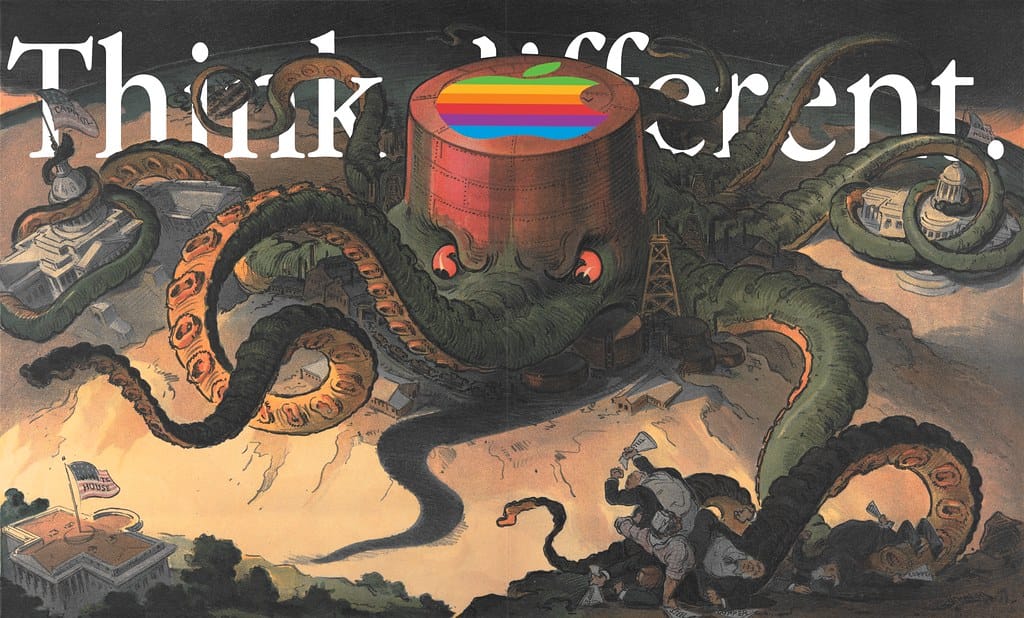Apple's Legal Battle Intensifies as Court Rejects Monopoly Case Dismissal
A federal judge has dealt Apple a significant blow in its ongoing antitrust battle, refusing to dismiss the Department of Justice's landmark lawsuit that accuses the tech giant of maintaining an illegal smartphone monopoly. The ruling sets the stage for what could become one of the most consequential antitrust cases in recent tech history.
Court Delivers Mixed Victory for DOJ
On November 19, 2024, U.S. District Judge Julien Neals in Newark, New Jersey, denied Apple's motion to dismiss the majority of the DOJ's antitrust claims. While the judge did dismiss one specific allegation related to Apple's news subscription service, the core accusations survived Apple's legal challenge.
The DOJ, joined by 16 state attorneys general, filed the sweeping lawsuit in March 2024, alleging that Apple has illegally monopolized the smartphone market by restricting competitors and limiting consumer choice. The case represents the Biden administration's most aggressive antitrust action against Big Tech to date.
The Heart of the Allegations
The government's case centers on Apple's alleged "walled garden" approach to its ecosystem. Prosecutors argue that Apple deliberately makes it difficult for users to switch to competing devices and services, while simultaneously blocking rival companies from offering competitive alternatives.
Key Areas Under Scrutiny
App Store Dominance: The lawsuit challenges Apple's control over app distribution on iOS devices, arguing that the company's 30% commission and restrictive policies stifle competition and innovation.
iMessage Lock-in: Regulators claim Apple intentionally degrades messaging experiences between iPhone and Android users, creating social pressure to stick with Apple devices.
Digital Wallet Restrictions: The case alleges Apple blocks third-party companies from accessing the iPhone's payment chip, maintaining its Apple Pay monopoly.
Cross-Platform Compatibility: The DOJ argues Apple deliberately makes its services work poorly with non-Apple devices, forcing consumers into its ecosystem.
Apple's Defense Strategy
Apple has vigorously defended its practices, arguing that its integrated approach benefits consumers through enhanced security, privacy, and user experience. The company contends that its market position results from superior products and innovation, not anticompetitive behavior.
In court filings, Apple argued that the DOJ's case relies on "novel and legally flawed theories" that would ultimately harm consumers by forcing the company to redesign its products in ways that compromise security and functionality.
Market Context and Stakes
Apple commands approximately 65% of the U.S. smartphone market by revenue, with the iPhone generating over $200 billion in annual sales. The company's App Store alone is estimated to generate $20-25 billion in annual revenue through its commission structure.
The case comes as Apple faces increasing regulatory pressure globally. The European Union's Digital Markets Act has already forced Apple to allow alternative app stores and payment systems in Europe, changes the company strongly resisted.
Broader Implications for Big Tech
This case represents part of a broader crackdown on major technology companies. The DOJ is simultaneously pursuing antitrust cases against Google, while the Federal Trade Commission has filed suit against Amazon and Meta. These cases collectively signal a more aggressive regulatory stance toward tech giants.
Legal experts suggest that if the government prevails, it could force fundamental changes to how Apple operates its ecosystem, potentially opening up the iPhone to greater competition and reducing Apple's control over app distribution and payments.
What Comes Next
With the motion to dismiss largely rejected, the case now moves toward discovery and eventual trial. This process could take years to resolve, during which time Apple will continue operating under its current business model while facing ongoing legal uncertainty.
The judge's ruling doesn't determine the merits of the government's case but establishes that the allegations are legally sufficient to proceed. Apple will now need to defend its practices on their substance rather than on procedural grounds.
The Road Ahead
This ruling marks a critical juncture in the ongoing battle between regulators and Big Tech. For Apple, the stakes couldn't be higher – the case threatens the very foundation of its lucrative services business and integrated ecosystem strategy.
For consumers and competitors, the outcome could reshape the smartphone landscape, potentially leading to more choice in app stores, payment systems, and device interoperability. As this legal drama unfolds, it will likely set important precedents for how antitrust law applies to digital platforms in the modern economy.
The tech industry will be watching closely as this case progresses, knowing that its resolution could fundamentally alter the competitive dynamics of one of the world's most valuable markets.
